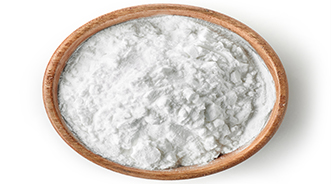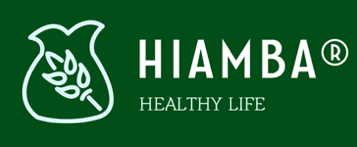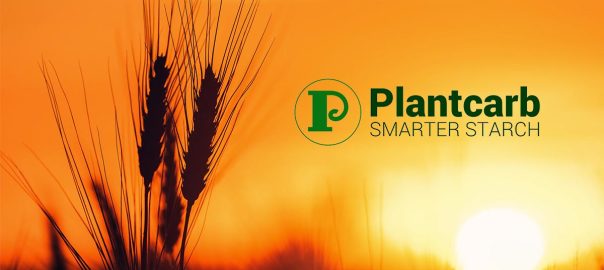One in ten adults lives with diabetes and the number is rising fast. With diabetes being the world’s fastest growing chronic condition, we need to lower our sugar consumption. Jan Mousing, CEO of the agbiotech company Plantcarb, believes to have found a solution with a unique proprietary starch, which can be used as a health ingredient as well as an extremely strong compostable bioplastic.

In 2018, serial-entrepreneur Jan Mousing was hired by Aarhus University as a business developer, which is how he met two remarkable plant scientists. As the only ones in the world, these scientists have developed a unique method for producing agricultural crops whose starch can lift the burden of the global type-2 diabetes epidemic and dramatically reduce the growing ‘plastic soup’ in our oceans. No wonder, Jan immediately recognized the potential of this unique product.
Mid 2019, he founded the spin-out Plantcarb, together with the two researchers Kim Hebelstrup (CSO) and Andreas Blennow (CINO). And they’ve made great progress since.
“Looking at all my previous companies, I’ve never been more convinced about the huge market potential than with Plantcarb!”
~ Jan Mousing
Starch: most common carbohydrate in human diet
So, let’s start with the ingredient: starch, the most common carbohydrate in human diet. It’s a key ingredient in thousands of food products we consume on a daily basis, including bread, pasta and baking flour. And as an additive for food processing, starch is typically used as thickeners and stabilizers in foods such as puddings, custards, soups, sauces, gravies etc. But starch is also used in many non-food applications, like adhesives, textiles, paper and bioplastics.
Not surprisingly, the starch market is huge. In 2020, the global industrial starch market size was valued at roughly USD 98 billion. In comparison, the market for egg whites – another major food ingredient – was ‘only’ valued about USD 29 billion. Also interesting, some plant-based egg alternatives are even made from starches.
But here’s the problem with starch. Many starches break down sugars too quickly, which makes our blood sugars levels increase fast to an unhealthy level. It thereby causes a high glucose peak described by the so-called Glycemic Index (GI). On the long term, frequent increase of blood sugars to high levels (high GI) may lead to type-2 diabetes. And with diabetes being one of the world’s leading cause of death, we urgently need a solution.
War on diabetes and plastic waste with 100% amylose starch
Starch consists of two types of natural compounds: amylose and amylopectin. The latter being the ‘bad guy’. Plantcarb is developing a grain based on an ancient barley whose starch is 100% amylose. The crop has a remarkable high yield and is super resistant throughout the seasons.
“The world has never seen this before!”
~ Jan Mousing
Compared to other flours, the amylose is not broken down into sugars but converted into healthier short-chain fatty acids. This means less sugar intake for humans and a prevention of type-2-diabetes. The company’s first application is HIAMBA, a proprietary barley flour with the potential to prevent fast breakdown from starch to sugar. According to Plantcarb, this could have the potential of becoming a new plant-based staple in our diets.
In addition to application in food, Plantcarb’s natural amylose can also be used as a raw material for extremely strong and biodegradable plastic. “It’s 100 times stronger than other starch-based bioplastics,” says Jan. “You can even build solid, compostable bicycles with it.” This apparent superplastic is a low cost and eco-friendly alternative to plastics derived from fossil oils. Hello new era!
The challenge

Excited already? There is one temporarily drawback. The current crop that is able to grow 100% amylose is a Genetically Modified Organism (GMO). Which makes it – currently – unfit for the European food market, and generally unpopular among food producers throughout the world. Thus, the challenge is to reverse engineer barley to a 100% amylose crop that can be grown fully GMO free.
The good news is that Plantcarb’s researchers already made great progress in developing several non-GMO variants. According to Jan, the first results look very promising. “We expect to take it to market within two years from now. Early next year, we plan to raise investments to make it all happen.”
Connecting with the agrifood industry
Of course, we gotta ask how Plantcarb has benefited from support by StartLife.
Soon after Plantcarb was founded, Jan was contacted by Carla van Heck, one of StartLife’s coaches: “I’m educated as veterinarian including a Ph.D. in epidemiology and economics. When Carla reached out to me, I immediately realized they could be a valuable steppingstone to the agrifood industry for us. And they have been. Over the past 1,5 years, StartLife has set up several meetings with the right people at relevant industry players, which would have been very difficult to achieve without them. It has given us great insight and valuable feedback.”
Jan also wants to give kudos to Carla. “She has been very supportive from the get-go and provided valuable advice and suggestions.”
“It’s only a matter of time for Plantcarb to become successful!”
~ Carla van Heck
Carla is very excited about Plantcarb and enjoys working with Jan Mousing. “It takes courage to commercialize a university tech spin-off with such a long road to market. But what fascinates me most about Plantcarb is that their unique innovation has such a wide range of application purposes. Their challenge now is to find their power as a platform technology and specify their application. Having said that, I believe it’s not a question if Plantcarb will become successful, but how fast. “
Want to try Plantcarb’s 100% amylose grain?
What’s ahead? Plantcarb is now looking for companies that are ready to bring it to the next step by testing their amylose for application purposes. This can be both in food and bioplastics. Additionally, they are looking for companies in the starch purification industry to come up with new ways to purify starch with short cuts that require less resources. Plantcarb has 200kg of amylose flour available for testing and can produce more.

Are you in for a trial with a next generation food ingredient? Jan Mousing is looking forward to hearing from you. Email: jm@plantcarb.com
